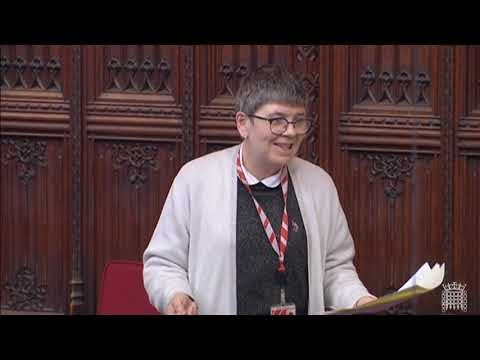Challenging the Online Safety Bill
The end of WhatsApp, defining harm, and giving power to big tech
I have been busy debating the Online Safety Bill, and my recent interventions in the House of Lords have all tried to draw attention to the myriad of ways that this bill would harm free speech. I think few people grasp how wide-ranging and dangerous the Bill is.
Yesterday, in the House, I was mainly focused on three issues: who defines ‘harm’, what Big Tech can censor, and the possibility of the end of encrypted messaging.
To start with that last point, the Bill would effectively mean the end of popular and secure apps like WhatsApp. All this is done, of course, in the name of child protection. But we really must not allow our very understandable worries about what happens online (I am well aware of the problem of sexual and emotional abuse) to effectively grant the state a right to snoop 24/7 on our private messages. It would be like having CCTV embedded in our phones. I don’t need to state that our private messages are, and should be, PRIVATE.
We then moved onto the issue of Big Tech. The government demands that Big Tech takes down illegal content, and this might seem like a pretty straightforward issue. But it is just not that simple. It skips the question: Who defines what is illegal? Of course, some issues are simple. But when nebulous terms like ‘hate speech’ are part of contemporary laws, it becomes an open door to the removal of all kinds of content. One example given by a former minister cited Andrew Tate - would posting him be so criminal it justified removal? Big Tech companies are very likely to err on the side of caution here, which would mean that we’d see even more risk-averse removal of content if the #OnlineSafetyBill passes unamended.
I also addressed some amendments about the idea of harm. Lots of the bill and the comment on it focuses on harms to children. I asked what is a pretty basic question: who'd define harm? This is especially crucial when it comes to the category of psychological harm. As we know, this can mean everything from serious mental illnesses to encountering things we find offensive. Of late, people claim they are ‘traumatised’ or even have PTSD from encountering bad taste or offensive material. Will the bill include that? This would be a wild and unpredictable step. We could soon find that almost anything could be censored under the Online Safety Bill on the most flimsy of pretences.
And while we're on the subject, if you state that online harms for young are obvious - eg, eating disorders/ self-harm - why not include the affirmation of gender identity that involves hormones, chest-binding, self- mutilation or the like? How can some be considered harms and others not?
I also had the opportunity to challenge a Lord who said, incredibly, that there was not enough policing of crime online today. Perhaps they had been living under a rock! The police already spend an inordinate amount of time criminalising and investigating what gets said on social media, and far too little time solving real crimes in the real world.
It isn’t clear what the final shape of the Online Safety Bill will be. But I am doing everything possible from my position in the Lords to try and ensure that the worst elements of this Bill are challenged, debated, and publicised. But protecting free speech against this Bill is going to require a serious public effort. We all need to step up, raise our voices, and defend freedom - online or off.
Think about sharing this post or one of these videos to spread the word!
Some more on the Online Safety Bill
On Tuesday, I made a speech raising the problems that enforcing age verification might cause - for anonymity, security but also endangering sites that might have to close down - and that we should trust user self-regulation without excessive regulatory interference.
Then, I argued for exemptions for smaller platforms such as Wikipedia/Mumsnet from the Online Safety Bill's huge, red-tape regulations. I'll be trying to find ways over future weeks to make case for more choice/freedom, and to fight off the stultifying impact of the government's plans for online speech.
About an hour later I summed up some of the arguments - bi-partisan response from both the government and Labour. Disappointing, but not surprising. Far too much unanimity regarding whipping up fears of online horrors with too little regard for protecting the virtues of civil liberties.



